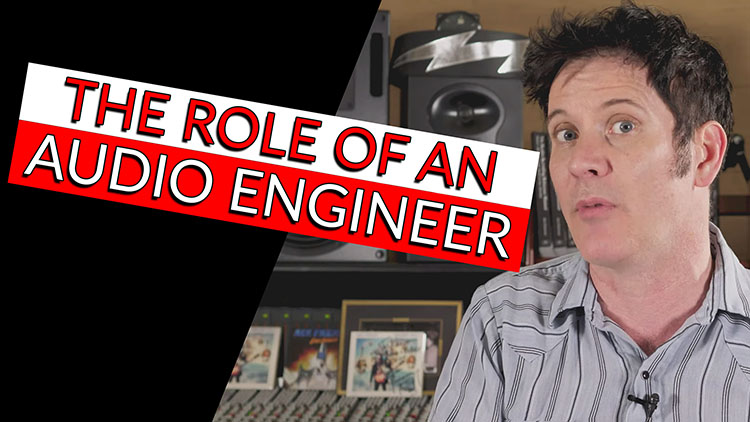As always we have a few fun questions for you today! One of them may start up a debate that could last months. – haha, gear up and get ready to leave a comment under today’s Youtube video.
Today’s featured question is “Can you explain in broad terms what an Audio engineer does while in a Daw? Are we cleaning up the sound in all the individual instruments and then putting them together? Or do we have to make decisions based on how the sounds interact with one another? “
Making decisions based on how sounds interact with one another is a big part of what we’re trying to do. When I record it’s really important for me to get the sound how I want it to be, so I can then relate how the next sound is going to interact with it.
In just over a week I’m going to be speaking at a MUSE Expo, and I’m going to be pulling up a multitrack and discussing the recording. – The reason I’m doing this is because the way I recorded the song is exactly the way that I wanted to hear it.
Doing this allowed me to get the sound that I wanted on drums, bass, guitar, pianos, and vocals, because everything interacted and fit together. It was like a puzzle that I built specifically, the drums allowed the bass to sit in the way that it did and the guitars left room for the … you know what I’m saying.
Everything had a specific sound so the second part of this question is fantastic. – Yes, it is really important to make decisions based on how the sounds interact with one another.
You also asked If we’re “cleaning up the sound of all the individual instruments then putting them together?” the short answer to this is yes, there’s an element of cleaning up. If I’m recording on my own and I’m playing all the instruments, for example if I’m playing all the instruments, drums, guitar, bass, keys and all that stuff, I might overplay because it’s hard to self produce.
I might overplay on my own and then come back in and mute it. Having that objectivity of not playing an instrument and sitting down to listen to the track to find where it works, and remove it from where it doesn’t. That’s part of my decision making and then I’ll play another part.
When I’m working with an instrumentalist, like a guitar player who I’ve hired to play guitars, I will focus on the parts where they should be. Rather than having them give me a beautiful Arpeggio through the whole song, I can spend a little more time pinpointing where it is I want guitar parts and just focusing on those 3 or 4 areas that need that arpeggio.
To a certain extent we’re cleaning up individual instruments and then putting them together.
If you’re just engineering you’re probably doing a lot of clean-up and balancing things all of the time. At a minimum, you should be rough mixing so that it always sounds good coming out of the speakers.
A big part of an engineer’s job is to make sure the song sounds good, all of those things mentioned above are important. Record the way you want to hear things, even if that means recording a DI and using plugins. Whatever it is, get that sound the way you want it to be, and you’ll get your answer on what to do next.
Edit you song so your performances are where you want them to be, that will again help you know what the next part of the process will be and how the parts interact. Another part of the engineer’s job is to tighten where necessary, this is an art, it’s not just making everything sit on the grid. Being able to identify when a guitar has two parts that are slightly late and don’t feel good against the track. Then nudging them slightly forward as opposed to chopping the whole thing together.
Watch the full episode of FAQ Friday below!
Learn more about the roles of an audio engineer below:
Do You Need an Audio Engineering Degree?
We cover the following questions during this episode of FAQ Friday!
• How often do you update your Mac OS? (0:48)
• What is the ideal format one should use when recording? (6:33)
• Can you explain in broad terms what an Audio engineer does while in a Daw? Are we cleaning up the sound in all the individual instruments and then putting them together? Or do we have to make decisions based on how the sounds interact with one another? (10:53)
